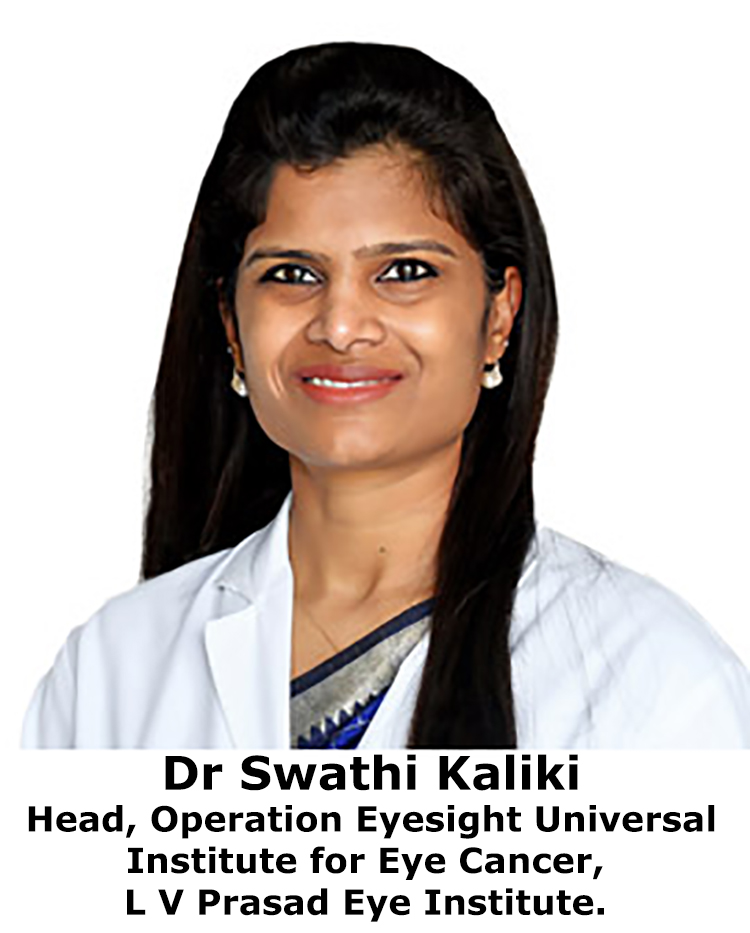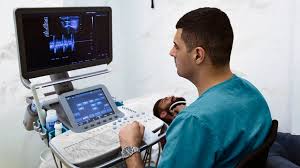Yes, CANCER can happen in the EYES also!
It can occur in newborns, in children and in adults Raising awareness about Eye Cancer on the World Cancer Day - 4th February 4th February is observed as the ‘World Cancer Day’ to raise awareness about Cancer

It can occur in newborns, in children and in adults
Raising awareness about Eye Cancer on the World Cancer Day – 4th February
4th February is observed as the ‘World Cancer Day’ to raise awareness about Cancer – one of the leading causes of deaths worldwide. Cancer is a large group of diseases (affecting various parts of the body) and occurs when the normal cells become cancerous cells and multiply and spread, resulting in formation of a mass called a tumour.
Awareness about eye cancer among the public is low – few are aware that cancer can happen in the eyes also. Eye Cancer is a generic term used to explain many types of cancer or tumours that form in the tissues in and around the eye or in the exterior parts of the eye, such as the eyelid or conjunctiva (the thin-clear membrane that protects our eyes). It can occur in newborns, in children and in adults.
“Among all forms of cancers, the incidence of eye cancer is estimated to be low. But it can result in loss of life and vision. It is curable if the tumour is detected early. Spreading awareness will help in the early diagnosis and appropriate treatment of eye cancer, thus saving life and vision of a person.
Whenever we are treating a patient with cancer, there are three goals that we want to achieve – first, save the life; second, save the eye; and third, save the vision of the patient. Despite our best efforts to save a life in a significant percentage of patients, eye removal surgery is required. Generally, this is because the patient comes to us at an advanced stage. Eye cancer can also spread from one eye to the other eye or to other parts of the body if not diagnosed early and treated appropriately,” says Dr Swathi Kaliki, Head, Operation Eyesight Universal Institute for Eye Cancer, L V Prasad Eye Institute.
“Certain eye cancers may be related to smoking, virus infection and excessive exposure to ultraviolet light. They are unlikely to be related to food habits. Certain cancers can be inherited from affected family members, and those at risk should undergo screening with an eye cancer specialist. While most eye cancers cannot be prevented, it is important for individuals with family history of eye cancer to undergo routine eye screening so that the disease can be detected early and treated appropriately. For those without any family history of eye cancer, if they notice any swelling/lesion (lump) in the eyelids or on the surface of the eye or forward protrusion of the eyes or experience decreased vision, they should go for an eye examination without delay” adds Dr Kaliki.
Different kinds of Eye cancer:
- Eyelid Tumours – arising on the eyelids or eyebrow region
- Conjunctival Tumours – on the surface of the eye
- Corneal Tumours – on the front surface of the eye
- Orbital Tumours – occurring behind the eye and pushing the eye forward
- Intraocular Tumours – occurring inside the eye in the region of the iris, retina, optic disc, etc
Symptoms:
- Bulging of the eye
- Swollen eyelids or a lump in the eyelid that is increasing in size
- Disproportion in the size of the two eyes
- White reflex in the eye
- Occurrence of a dark patch in the eye that is getting bigger in size
- Squint
- Redness or pain
- Blurred vision or partial or total vision loss
These symptoms can also be caused by other minor or major eye problems and not necessarily a sign of eye cancer alone. But as soon as you notice these symptoms it is important to get your eyes checked by a doctor and seek timely treatment and care. It is important to be aware about these symptoms that otherwise could be easily dismissed as an infection.
Treatment
The treatment of cancer depends on the stage at which the patient presents. Different forms of therapy are available. For smaller tumours, medical therapy or laser would suffice. Large tumours may need surgery, while aggressive tumours need removal of the eye and tumour along with chemotherapy and sometimes even radiotherapy.
Over the past ten years, L V Prasad Eye Institute, across its network centres, has treated over 25,000 cases of various forms of eye cancer. The Operation Eyesight Universal Institute for Eye Cancer is a dedicated facility for Eye Cancer at the L V Prasad Eye Institute. It offers comprehensive and advanced treatment for managing eye cancer in children and adults. The team is also actively engaged in research, education, training, and capacity building of eye care professionals.






